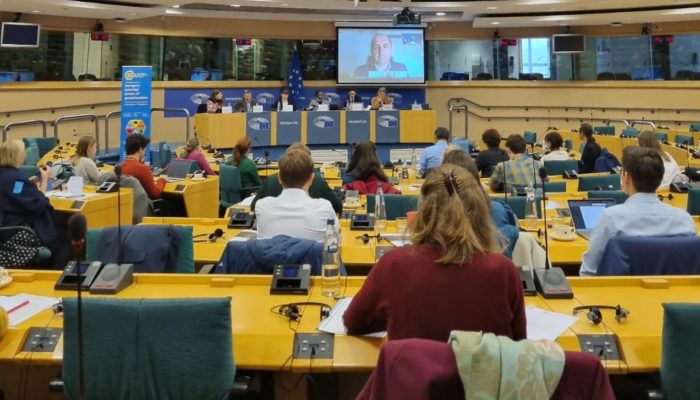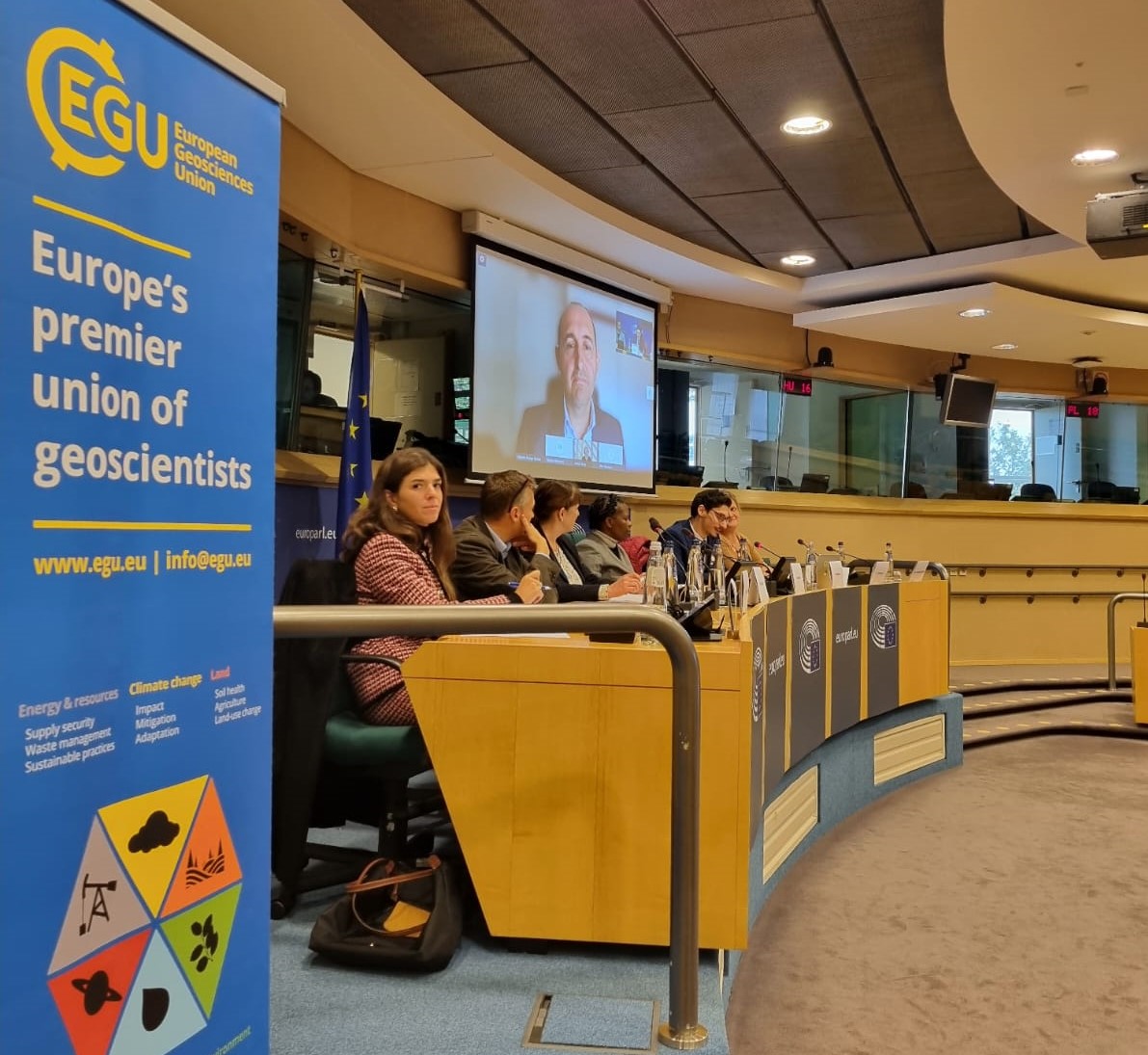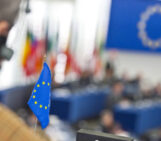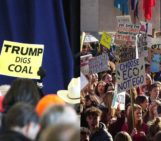
On 15 November 2022, the EGU and the European Parliament Intergroup on ‘Climate Change, Biodiversity and Sustainable Development’ jointly coordinated an event, ‘Supporting the EU’s Biodiversity Targets by Bridging the Science-Policy Divide’. The event highlighted how science could be used to support the ambitious targets outlined in the EU Biodiversity Strategy for 2030 and proposed EU Nature Restoration Law. But it was just the start of the discussion! This Month’s GeoPolicy Blog post outlines the specific areas mentioned during the event in which Europe’s scientific community can take the lead on creating evidence-informed policies.
1. Put science at the heart of the policymaking process
One of the key outcomes of the Supporting the EU’s Biodiversity Targets by Bridging the Science-Policy Divide was summarised by Member of the European Parliament (MEP), Cesar Luena who stated that
“[Scientific] proposals and recommendations are our guideline to implement effective policies. There is no way out of the biodiversity crisis without science!”
MEP María Soraya Rodríguez Ramos, went event further during the event by highlighting specific recommendations provided by EGU Biodiversity Task Force that she appreciated and would aim to integrate into the Nature Restoration Law, including the need to consult with local communities and including soil biodiversity as an additional target. This affirmation from two MEPs, including the Rapporteur of the Nature Restoration file, demonstrates the Parliament’s political will to engage more with Europe’s scientific community and should serve as an invitation to start to understand and participate in biodiversity policymaking processes.
2. Embrace the scientific community’s responsibility in policymaking
While science is vital in achieving the EU’s ambitious biodiversity targets, it’s only possible for policymakers to access and use the best available evidence if scientists acknowledge and accept responsibility for providing it. As Alberto Arroyo Schnell, Head of Policy and Programme at the IUCN’s European Regional Office, stated
“Scientists need to be aware of policy processes and the weight of their own responsibility in any publication or information [that they provide].”
Understanding this responsibility and knowing how to start engaging in policy can be difficult but there are some great resources outlined by the EGU’s Science for Policy Working Group in this recent blog post. If you’re just starting out on your #SciPol journey, you might like to follow one piece of legislation on The European Parliament’s Legislative Train to get a better idea about how legislation arrives, is processed, and passed. You can also take a look at the EGU Biodiversity Task Force’s response to the proposed Nature Restoration Law for an example of how scientific recommendations can be provided.
3. Break down academic silos
An important component of providing relevant, timely, and useful information to policymakers, is working across disciplines and sectors. Much of academia is currently very siloed and even within the EGU community, much of our work is presented within the silos of specific divisions! But to address complex policy problems and provide useful information, we need to go beyond our own scientific discipline. Biodiversity is a great example of this as understanding how ecosystems function, develop, fluctuate, interact, and degrade requires an overview that considers many different scientific disciplines. This interdisciplinary approach is also required when implementing sustainable strategies that effectively protect, conserve and restore nature.
4. Support knowledge management structures
Biodiversity initiatives, datasets, information, and experts are numerous and diverse. While individual scientists and research groups can support the policymaking process by answering specific questions, it is vital that we have science advisory mechanisms and platforms to coordinate the transfer of information to where it is needed on a larger scale.
The European Commission’s Knowledge Centre for Biodiversity is one such mechanism that aims to enhance cooperation on biodiversity data and support evidence-informed policy. These platforms and mechanisms ensure that individual scientists and research institutions don’t have to re-invent the wheel to engage and provide scientific evidence for policymakers. Scientists working in relevant areas should not only make use of these resources but support their establishment and ongoing work!
5. Engage and interact with more than just policymakers
Biodiversity loss and nature restoration are both impacted and influenced by everyone. The best available scientific evidence is not only vital in creating and implementing effective policies, but is also essential in guiding cooperate decisions, NGO strategies, public participation, and the information communicated by the media. Janica Borg, Biodiversity Strategy Coordinator at the European Environment Agency, stressed a similar point highlighting that while science is vital in informing policies that can achieve biodiversity targets, we need to engage all sectors for success. She went on to explain that restoring nature should be framed as an investment to those in finance-driven sectors, rather than a cost. Grégoire Dubois, Project Leader of the European Commission’s Knowledge Centre for Biodiversity, also underscored the need to collaboratively discuss the potential benefits, consequences, and synergies of various land-use strategies across sectors to ensure all factors are considered.
To provide useful information and effectively engage different sectors, scientists need to listen and respond to specific challenges and concerns. When appropriate, scientists who are creating a knowledge synthesis for policymakers should also consider consulting with non-academic sectors, such as indigenous peoples or relevant businesses, to ensure the information being provided is comprehensive. While engaging a diverse array of stakeholders to better understand their information needs and perspectives may be time consuming, it can provide you with inspiration for new research projects, diversify your network, and create opportunities for future collaborations and work. Attending non-academic events that are relevant to your research (whether they be community, business, or policy focused) can be a great way to start meeting relevant stakeholders.

Panel discussion during the ‘Supporting the EU’s Biodiversity Targets by Bridging the Science-Policy Divide’ event. Image credit: Simon Clark
The EGU Biodiversity Task Force aims to adopt these take-home messages and continue to provide policymakers working on relevant legislation with useful and timely information. As Task Force member Felicia Akinyemi said, “I see the EGU Biodiversity Task Force working as an Honest Broker for scientific knowledge. We’re able to support in the provision of scientific information, in the scrutiny of scientific evidence, and in highlighting the different consequence of policy actions.”
If you would like any further information on the event, EGU’s Policy Programme, or how EGU is supporting the EU’s biodiversity targets, please get in touch via policy@egu.eu. You can also watch or rewatch the event here and keep an eye on global biodiversity policy developments this month by following the COP15, a UN biodiversity conference that will see countries come together from 7–19 December 2022 to hopefully create a pathway to halt biodiversity loss and restore nature.




